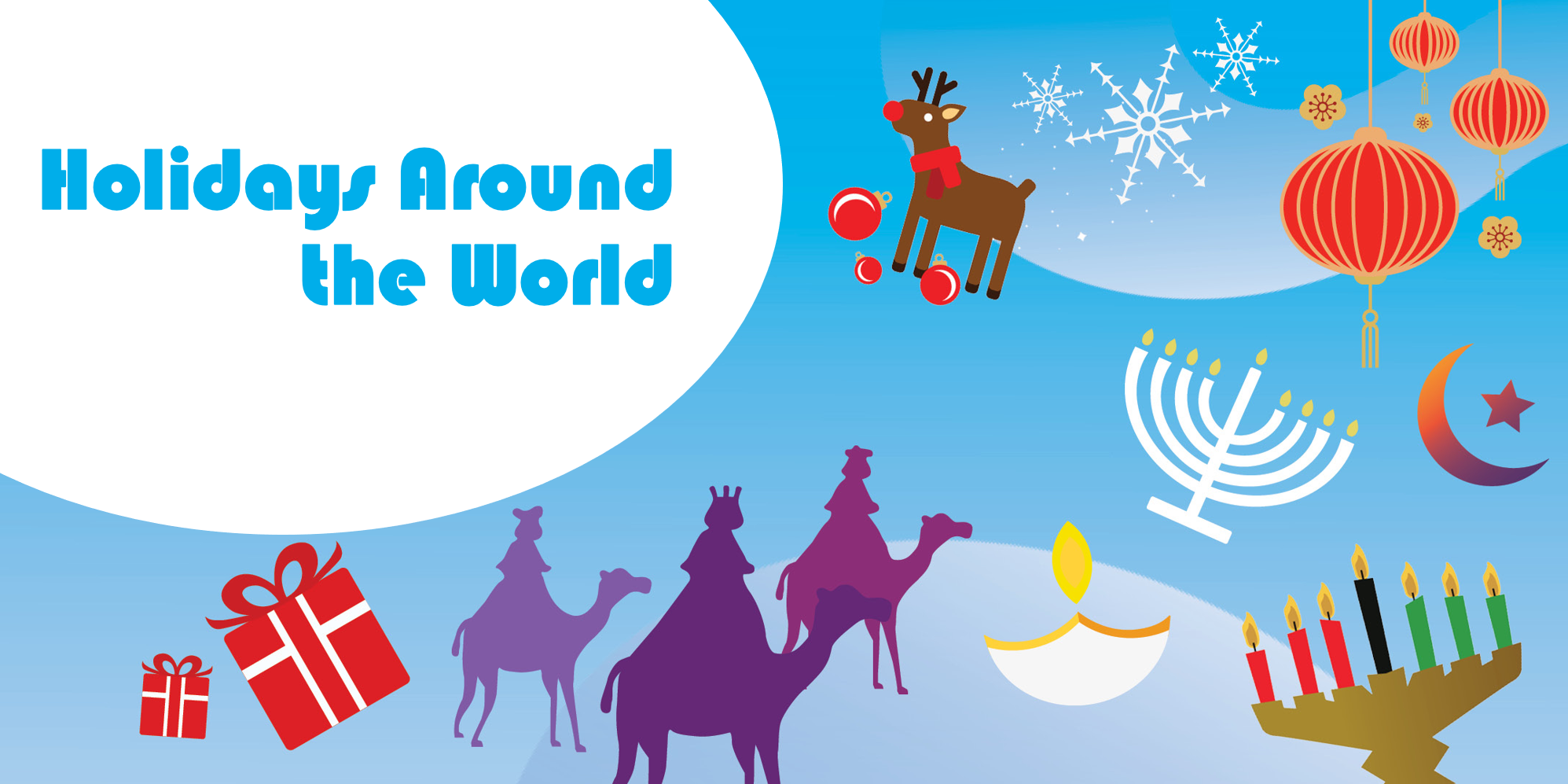 Activities for Kids
Activities for Kids
Holidays Around the World
December marks a very festive time. A time in which families and friends gather to celebrate. It’s important to learn about the different holidays and cultural diversity in our world. While Christmas may be a big holiday for some families, Three Kings or Ramadan can be a bigger celebration for other families. Here’s a quick breakdown on the holidays and some interesting traditions.
Boxing Day
Boxing Day has nothing to do with the fighting sport of boxing, but rather is a day when gifts are given to people in the service industry like mail carriers, doormen, porters, and tradesmen. It is celebrated the day after Christmas, December 26th
This is a holiday in the United Kingdom and most other areas that were settled by the English except the United States. Other countries that celebrate the holiday include New Zealand, Australia, and Canada.
What do people do to celebrate?
The main thing people do to celebrate is to tip any service workers who have worked for them throughout the year such as postal workers, the paper boy, the milkman, and doormen. The holiday is also a day to give to the poor. Some people gather gifts in Christmas boxes to give to poor children throughout the world.
In many countries Boxing Day has become a large shopping day. Just like Black Friday after Thanksgiving, Boxing Day is a day of big markdowns on products that stores were not able to sell for Christmas.
Depending on which country you’re in, you may celebrate it a little differently. Read more
Fun Family Activity:
- Boxing Day football (soccer) is a great British tradition, so seize the opportunity to take your child to their first match – even if it’s the local non-league team.
- A winter walk in the country is a great (and free!) Boxing Day tradition. Play ‘I spy’ as you go, or turn it into a treasure hunt and give your children a list of things they have to find or collect before the end of the walk to win a prize.
*source – https://www.netmums.com/christmas/12-ideas-for-a-brilliant-boxing-day
Chinese New Year
Chinese New Year is the most important of the Chinese holidays, and is a time of feasting with the family, celebration, fireworks and gift-giving. It is a 15-day holiday, beginning on the first day of a new moon and ending with the full moon on the day of the Lantern Festival.
The Chinese calendar is based on the lunar year, so the date of Chinese New Year changes every year. The Chinese calendar follows a 12-year pattern with each year named after an animal. There are various stories which explain this. The simplest is that Buddha (or the Jade Emperor) invited all of the animals to join him for a New Year celebration, but only 12 animals turned up. To reward the animals that did come, Buddha named a year after each of them in the order that they arrived, starting with the Rat, followed by the Ox, Tiger, Rabbit, Dragon, Snake, Horse, Goat (or Sheep), Monkey, Rooster, Dog and Pig. (Find another version of the story to print, below)
Depending on the year you are born, you are believed to have the various character traits of that year’s animal.
Fun Family Activity:
- Try expanding your palette and enjoy some traditional Chinese dumplings. Dumplings, represent reunion, harmony and wealth in Chinese culture. Generally, almost each family member helps to make dumplings together and talk with each other at the same time. Minced pork, fish, diced shrimp, tofu and vegetables are most popular stuffing. Traditional Dumpling Recipe
- Red Envelopes will be given to younger generation: this is a monetary gift from parents, grandparents and other relatives. The money in red envelopes must be new bills. Many children use the money from their red envelopes to buy books and school supplies.
Diwali
Festival of Lights
Diwali, or Dipawali, is India’s biggest and most important holiday of the year. The festival gets its name from the row (avali) of clay lamps (or deepa) that Indians light outside their homes to symbolize the inner light that protects us from spiritual darkness. This festival is as important to Hindus as the Christmas holiday is to Christians.
Diwali, celebrated in October or November each year, originated as a harvest festival that marked the last harvest of the year before winter. India was an agricultural society where people would seek the divine blessing of Lakshmi, the goddess of wealth, as they closed their accounting books and prayed for success at the outset of a new financial year. Today, this practice extends to businesses all over the Indian subcontinent, which mark the day after Diwali as the first day of the new financial year.
Indians celebrate with family gatherings, glittering clay lamps, festive fireworks, strings of electric lights, bonfires, flowers, sharing of sweets, and worship to Lakshmi. Some believe that Lakshmi wanders the Earth looking for homes where she will be welcomed. People open their doors and windows and light lamps to invite Lakshmi in.
Over the centuries, Diwali has become a national festival that is enjoyed by most Indians regardless of faith: Hindus, Jains, Buddhists, and Sikhs.
Fun Family Activity:
- Create a ‘peda-making station’ for kids! Here is an easy recipe to make this Diwali favorite. Just be sure to have an adult present for the actual cooking and supervising part.
- Or try your hand at making a Diwali Paper Lantern, and let your creativity and artistic skills shine. Tutorial Video
- Here are a few more activities you can do at home Read More
Hanukkah
The eight-day Jewish celebration known as Hanukkah or Chanukah commemorates the rededication during the second century B.C. of the Second Temple in Jerusalem, where according to legend Jews had risen up against their Greek-Syrian oppressors in the Maccabean Revolt. Hanukkah, which means “dedication” in Hebrew, begins on the 25th of Kislev on the Hebrew calendar and usually falls in November or December. Often called the Festival of Lights, the holiday is celebrated with the lighting of the menorah, traditional foods, games and gifts.
The Hanukkah “Miracle”
According to the Talmud, one of Judaism’s most central texts, Judah Maccabee and the other Jews who took part in the rededication of the Second Temple witnessed what they believed to be a miracle. Even though there was only enough untainted olive oil to keep the menorah’s candles burning for a single day, the flames continued flickering for eight nights, leaving them time to find a fresh supply. This wondrous event inspired the Jewish sages to proclaim a yearly eight-day festival. (The first Book of the Maccabees tells another version of the story, describing an eight-day celebration that followed the rededication but making no reference to the miracle of the oil.)
Hanukkah Traditions
The Hanukkah celebration revolves around the kindling of a nine-branched menorah, known in Hebrew as the hanukiah. On each of the holiday’s eight nights, another candle is added to the menorah after sundown; the ninth candle, called the shamash (“helper”), is used to light the others. Jews typically recite blessings during this ritual and display the menorah prominently in a window as a reminder to others of the miracle that inspired the holiday.
In another allusion to the Hanukkah miracle, traditional Hanukkah foods are fried in oil. Potato pancakes (known as latkes) and jam-filled donuts (sufganiyot) are particularly popular in many Jewish households. Other Hanukkah customs include playing with four-sided spinning tops called dreidels and exchanging gifts. In recent decades, particularly in North America, Hanukkah has exploded into a major commercial phenomenon, largely because it falls near or overlaps with Christmas. From a religious perspective, however, it remains a relatively minor holiday that places no restrictions on working, attending school or other activities.
Kwanzaa
The name Kwanzaa is derived from the phrase “matunda ya kwanza” which means “first fruits” in Swahili. Each family celebrates Kwanzaa in its own way, but celebrations often include songs and dances, African drums, storytelling, poetry reading, and a large traditional meal. On each of the seven nights, the family gathers and a child lights one of the candles on the Kinara (candleholder), then one of the seven principles is discussed. The principles, called the Nguzo Saba (seven principles in Swahili) are values of African culture which contribute to building and reinforcing community among African-Americans. Kwanzaa also has seven basic symbols which represent values and concepts reflective of African culture. An African feast, called a Karamu, is held on December 31.
The candle-lighting ceremony each evening provides the opportunity to gather and discuss the meaning of Kwanzaa. The first night, the black candle in the center is lit (and the principle of umoja/unity is discussed). One candle is lit each evening and the appropriate principle is discussed.
Seven Principles
Unity: Umoja (oo–MO–jah) – To strive for and maintain unity in the family, community, nation, and race.
Self-determination: Kujichagulia (koo–gee–cha–goo–LEE–yah) -To define ourselves, name ourselves, create for ourselves, and speak for ourselves.
Collective Work and Responsibility: Ujima (oo–GEE–mah) – To build and maintain our community together and make our brother’s and sister’s problems our problems and to solve them together.
Cooperative Economics: Ujamaa (oo–JAH–mah) -To build and maintain our own stores, shops, and other businesses and to profit from them together.
Purpose: Nia (nee–YAH) – To make our collective vocation the building and developing of our community in order to restore our people to their traditional greatness.
Creativity: Kuumba (koo–OOM–bah) – To do always as much as we can, in the way we can, in order to leave our community more beautiful and beneficial than we inherited it.
Faith: Imani (ee–MAH–nee) -To believe with all our heart in our people, our parents, our teachers, our leaders, and the righteousness and victory of our struggle.
Lighting the Candles
The Kinara holds the seven candles of Kwanzaa, one for each day of the holiday and one for each principle. The trio of red, green, and black colors represents Africa, but each color also holds individual meaning:
- The black candle represents the African people and corresponds to the principle of Unity.
- The red candles represent struggle, with candles devoted to Self-Determination, Cooperative Economics, and Creativity.
- The green candles represent the earth along with Purpose, Collective Work and Responsibility, and Faith.
The black candle is placed in the center of the Kinara, with the red candles to the left and the green candles to the right. On December 26, families light the black candle. On each following night, one additional candle is lit as the family reflects on the meaning of a specific principle.
Ramadan
Ramadan is the 9th month of the Islamic calendar. The term Ramadan literally means scorching in Arabic. It was established as a Holy Month for Muslims after the Quran was revealed to the Prophet Muhammad in 610 CE on the occasion known as Laylat al-Qadr, frequently translated as “the Night of Power. Observance of Ramadan is mandated in the Quran, Surah 2, Ayah 185: “The month of Ramadhan [is that] in which was revealed the Qur’an, guidance for the people and clear proofs of guidance and criterion. So whoever sights [the new moon of] the month, let him fast it; and whoever is ill or on a journey – then an equal number of other days. Allah intends for you ease and does not intend for you hardship and [wants] for you to complete the period and to glorify Allah for that [to] which He has guided you; and perhaps you will be grateful.”
Because the cycle of the lunar calendar does not match the solar calendar, the dates of Ramadan shift by approximately 11 days each year. The ending of Ramadan is marked by the holiday of Eid ul-Fitr, which takes place either 29 or 30 days after the beginning of the month. On Eid ul-Fitr, morning prayers are followed by feasting and celebration among family and friends.
What are the daily fasting requirements?
During the month of Ramadan, most Muslims fast from dawn to sunset with no food or water. Before sunrise many Muslims have the Suhur or predawn meal. At sunset families and friends gather for Iftar which is the meal eaten by Muslims to break the fast. Many Muslims begin the meal by eating dates as the Prophet used to do.
This ritual fast known as, Sawm, is one of the five pillars of Islam, and requires that individuals abstain from eating, drinking, smoking and sexual intercourse.
To find the specific times for Ramadan fasting, click over to this helpful tool provided by IslamiCity that allows you to calculate prayer schedules — including sunup and sundown — by entering your city or zip code.
What is the ‘goal’ of Ramadan?
In general, the practices of Ramadan are meant to purify oneself from thoughts and deeds which are counter to Islam. By removing material desires, one is able to focus fully on devotion and service to God. Many Muslims go beyond the physical ritual of fasting and attempt to purge themselves of impure thoughts and motivations such as anger, cursing, and greed.
Three Kings
January 6th is Three Kings Day. It is a date celebrated throughout Latin America, Spain, and in Hispanic communities of the United States. This is the Epiphany of the church calendar, the 12th day after Christmas, when the Magi arrived bearing gifts for baby Jesus. Traditionally, children receive gifts on this day, brought by the three kings, Melchor, Gaspar and Baltazar. In Latin America, January 6th, and not necessarily Christmas, is the day that children receive their gifts.
In the days preceding Three Kings Day, children write letters to the Magi requesting a toy or gift that they would like. On the night of January 5th, the figures of the Wise Men are placed in the nativity scene. In Mexico, children would traditionally leave out their shoes with a bit of hay in them to feed the animals of the Magi (they are often shown with a camel.) When the children wake up in the morning, their gifts will have appeared in the place of the hay. Nowadays, like Santa Clause, the Kings tend to place their gifts under the Christmas tree instead of in a shoe.
The most iconic tradition associated with Three Kings Day is the customary eating of a Rosca de Reyes (King’s Ring), a sweet bread shaped like a wreath, with candied fruit on top, and a figurine of a baby Jesus baked inside. The person who finds the figurine is expected to host a party on Día de la Candelaria (Candlemas), celebrated on February 2nd.
Here in the United States, the tradition of the Three Kings Day has carried on. Hispanic bakeries throughout the country typically sell hundreds of Roscas de Reyes during the day, and children patiently wait for their second gift of the holiday season.
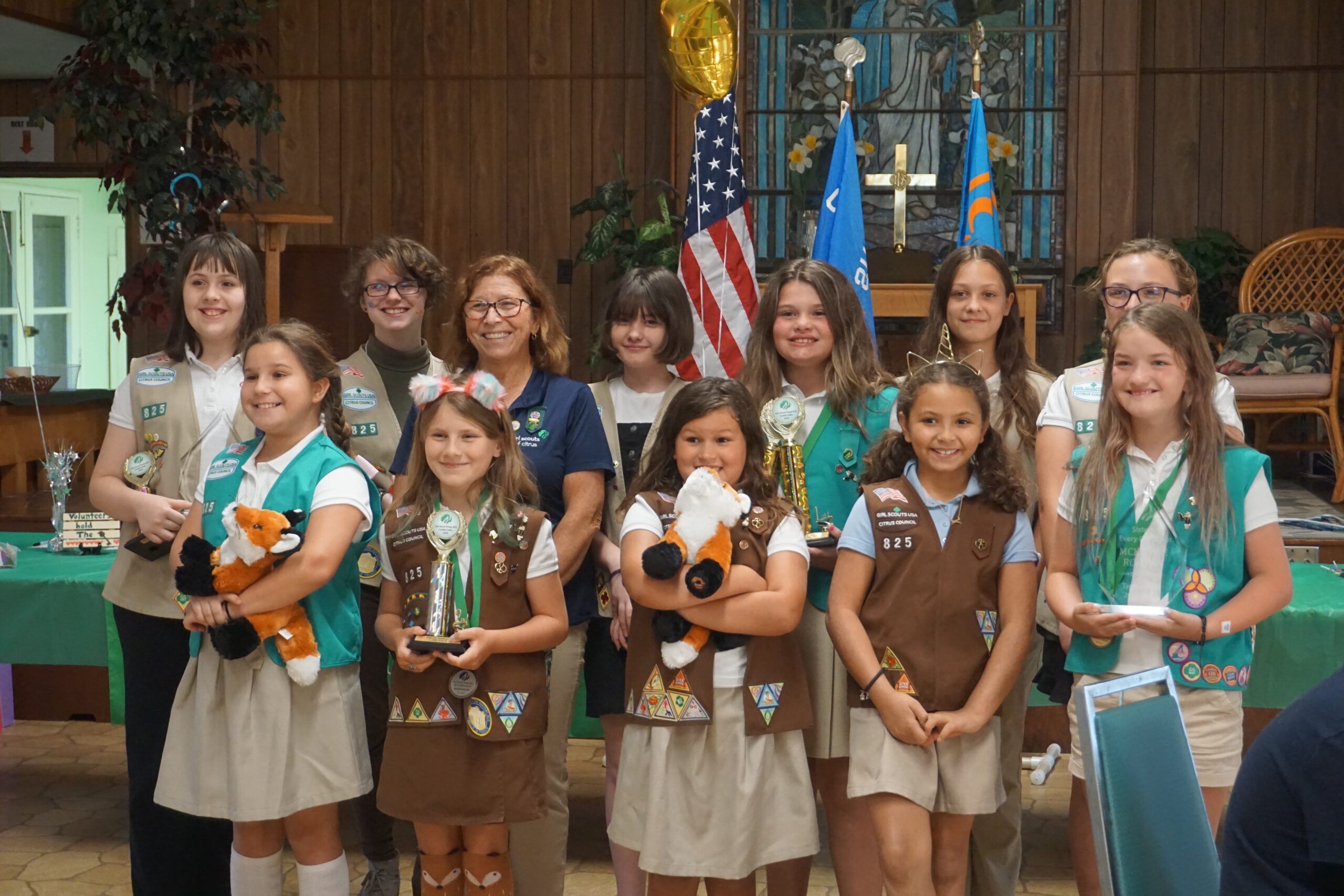
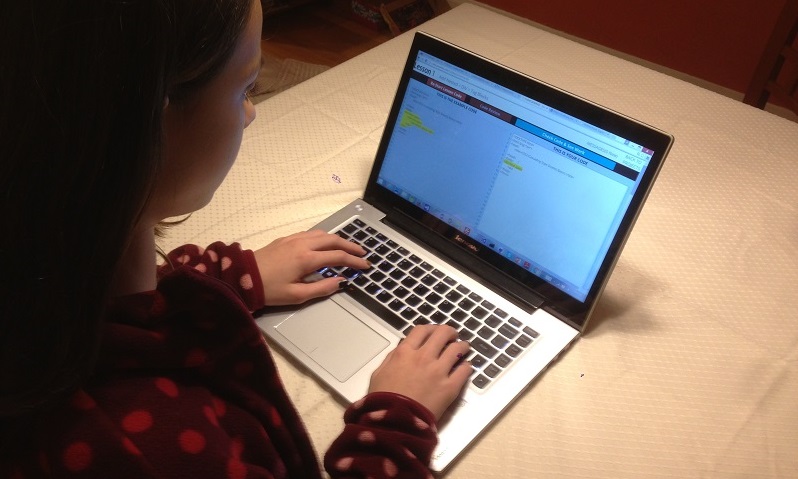





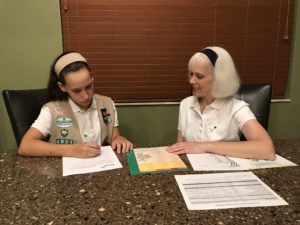
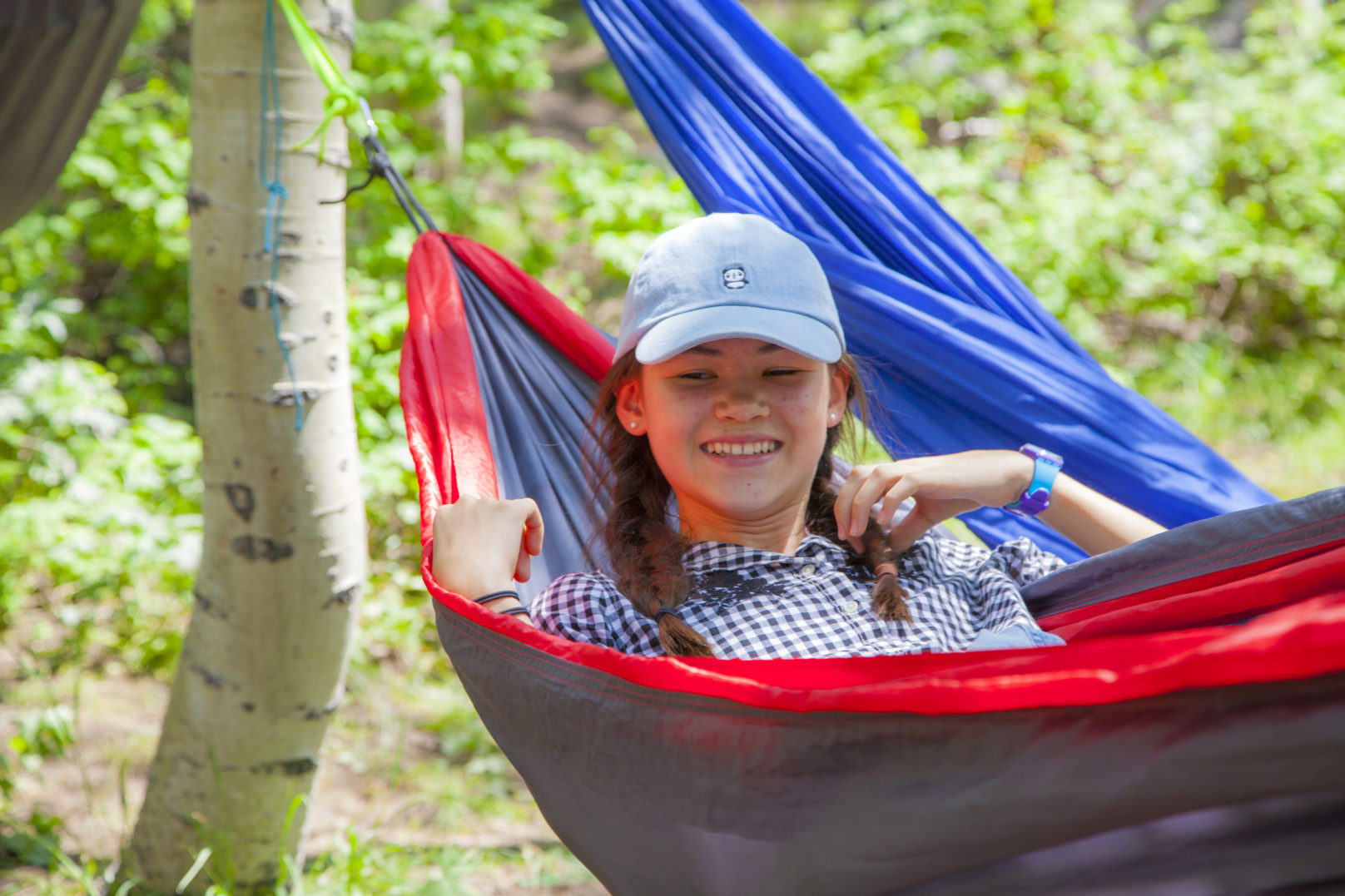
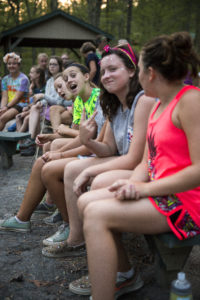 When Girl Scouts enjoy a camp experience outdoors, they:
When Girl Scouts enjoy a camp experience outdoors, they: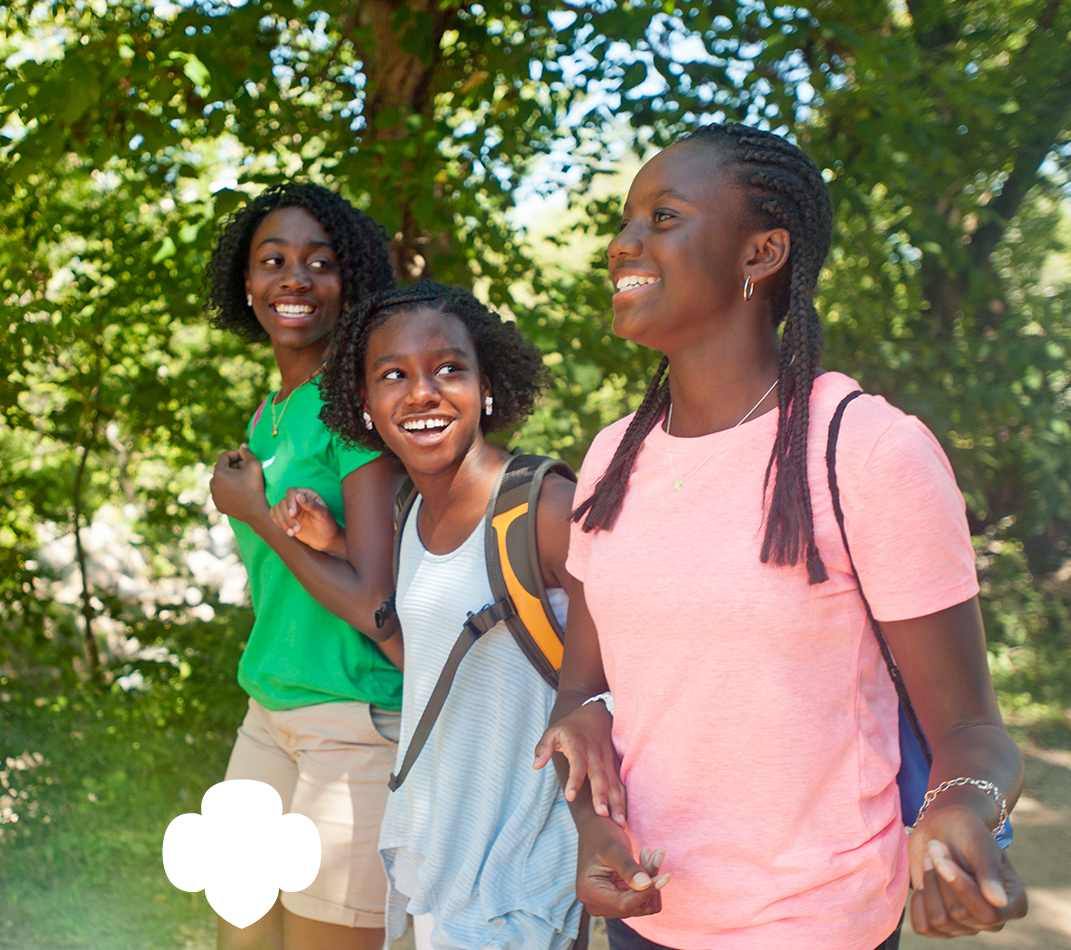
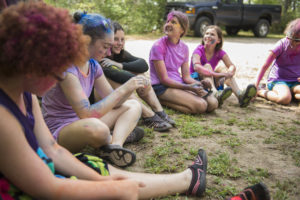
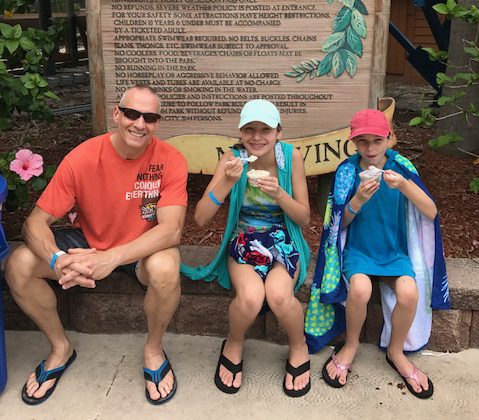
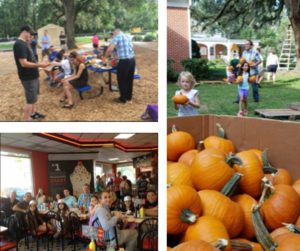
 Juliette Dad
Juliette Dad 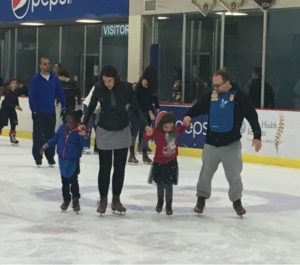 Behind the Scene GS Dad
Behind the Scene GS Dad Recruit your man!
Recruit your man!